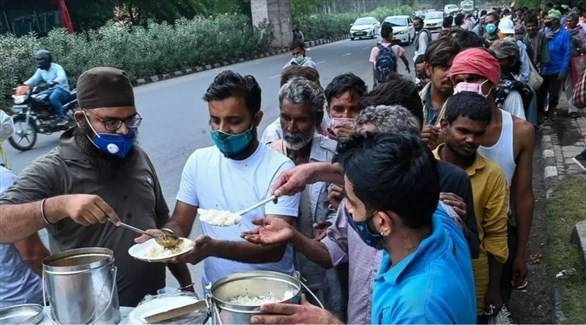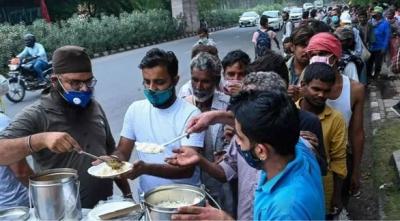Rashida Jaleel lives in anxiety about not being able to feed her seven children as a deadly wave of COVID plunges millions of Indian families into a spiral of poverty. The 40-year-old woman, along with her husband Abdul Jaleel (65 years old) and their children, essentially survives on one meal a day.
Jaleel told AFP while preparing traditional bread "roti" for their only meal of the day in their extremely small apartment in New Delhi, "When we feel hungry and thirsty, I feel powerless and anxious: 'How will I live like this?'"
She added, "We try to manage with whatever amount my husband can earn. If it's not enough, I stay hungry to be able to feed my children."
The coronavirus has claimed 160,000 lives in just eight weeks, overwhelmed hospitals, and led to the closure of many businesses in India. Experts warn of another looming crisis as hunger rises among the poor in India, who are still suffering the consequences of the first lockdown imposed last year.
Anjali Pardhuaj from the "Right to Food" campaign told AFP, "It is a dual crisis facing the poor in the country -- a health crisis and another economic crisis." She continued, "We have a massive health crisis... Many had to spend all their savings in an attempt to provide medical care for their families."
A study conducted by Azim Premji University in Bangalore revealed that about 230 million Indians fell into a poverty spiral (living on less than 375 rupees or about five dollars a day) during the first year of the pandemic.
The Indian Economic Monitoring Center indicated that over 7.3 million jobs were lost during April alone, which adds to the tragedy in a country where 90% of the workforce operates informally in the absence of any social security, leaving millions ineligible for emergency food allotments.
The study by Azim Premji University concluded that during last year's lockdown, around one hundred million people lost their jobs in India. After the lifting of restrictions, 15% failed to find employment by the end of 2020, including 47% of working women.
The "Right to Food" organization runs campaigns to provide food aid to those in need, even if they do not possess food ration cards.
As the pandemic strikes years of progress in reducing poverty, experts warn that many people may remain trapped in a cycle of poverty even after lockdown measures are lifted.




